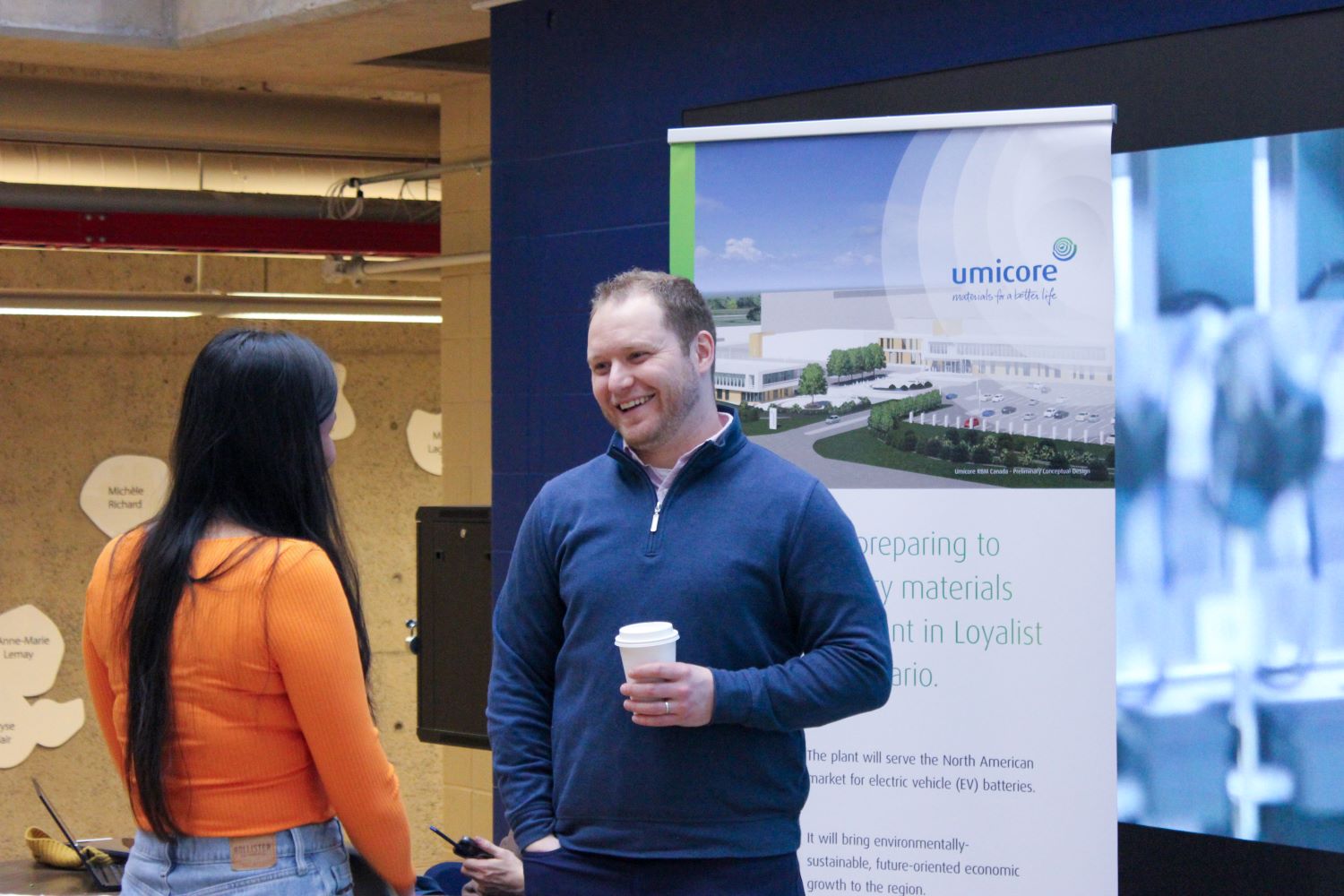
Before she embarked on her current Queen’s Undergraduate Internship Program (QUIP) experience, Paneet Punia attended a series of summer workshops presented by the Smith Engineering Corporate Relations team called QUIP Catalyst, designed exclusively for Mechatronics and Robotics Engineering students to prepare them for working in industry.
“This workshop series boosted my confidence in my abilities and motivated me to gain hands-on technical expertise,” says Punia, a third-year student in the Mechatronics and Robotics Engineering program who is currently employed as an Instrumentation and Mechanical Design Intern at IDEXX.
“The workshop helped me refine my resume and cover letter, preparing me to apply for internships,” she says. “Having industry insight integrated into the classroom experience was very motivating and added significant value to the program.”
The QUIP Catalyst workshops are part of a new career preparedness program called Engineering Career Accelerator Program (ECAP) that provides students professional skills and engagement with representatives from internship employers to strengthen applications and ultimately ensure optimal internship experiences. Embedded into courses of the Smith Engineering curricula, ECAP components, including access to the resource portal, and research and industry guides, begin in first year and carry through a student’s entire learning journey.
“Engineering students have incredibly busy academic calendars,” says Chelsea Elliott, Director of Corporate Relations. “We built the Engineering Career Accelerator Program, ECAP, to level the playing field by embedding career education in class and increasing equity and access to employment information, resources and opportunities from day one.”
Most students choose to incorporate an internship to follow their third year of study and — given Queen’s reputation among employers for academic rigour — they will enter work environments that expect a degree of preparedness for the 12-16 month long roles they will take on. The ECAP program allows them to meet these expectations, where the employers build on that foundation while the student contributes tangibly to the operation of the company.
“My internship has helped me to get a feel for working in industry and the importance of communication skills in interactions with teams, peers, and supervisors,” says Punia. “I’ve learned when and how to reach out to my manager, be curious, focus on the right tasks, build relationships, and deepen my understanding of engineering.”
The ECAP program is designed to connect the needs and expectations of students with those of engineering employers who work with the Corporate Relations team at Smith Engineering. While any organization can appreciate the value of an intern and experience-based learning, the 12-16 month terms enable an ease of transition from one to the next. As much as any intern can arrive prepared to work, the overlap of intern terms benefits employers and interns by allowing for the outgoing intern to efficiently acclimate a new intern to the company processes and working expectations.
“Creating a safe space for students to take risks, contribute, and succeed is crucial,” says Brad Crawford (Sc’11, Mining and Mineral Engineering), Production Manager, pCAM at Umicore. “Each company is different, and the learning curve for new employees can be steep, often taking months. The 12–16-month internship model is beneficial for the intern and company as it allows students to add value to longer-duration projects and can provide exposure to different business areas; this gives a benefit similar to having multiple internships.”
The process begins in first year and the experiences accumulate through second and third year. Integrating career exploration, industry insight and internship preparation directly into core classes ensures all students acquire essential skills. Interns who return to campus share their exciting projects and insights from their internships with first and second-year students, all while sharpening their presentation, mentorship, and leadership skills. The Corporate Relations ECAP team supports students by facilitating discussions and sharing industry data to help them envision potential roles in various sectors.
“We are starting to see positive outcomes as we hear from students and speak to employers,” says Elliott. “By integrating career content and employer interactions into the curriculum, students are not only developing professional workplace skills alongside their academic studies but also transforming their perceptions of their abilities and the world of work.”
“I have found that students with internship experience can stand out significantly compared to those without it,” says Crawford.